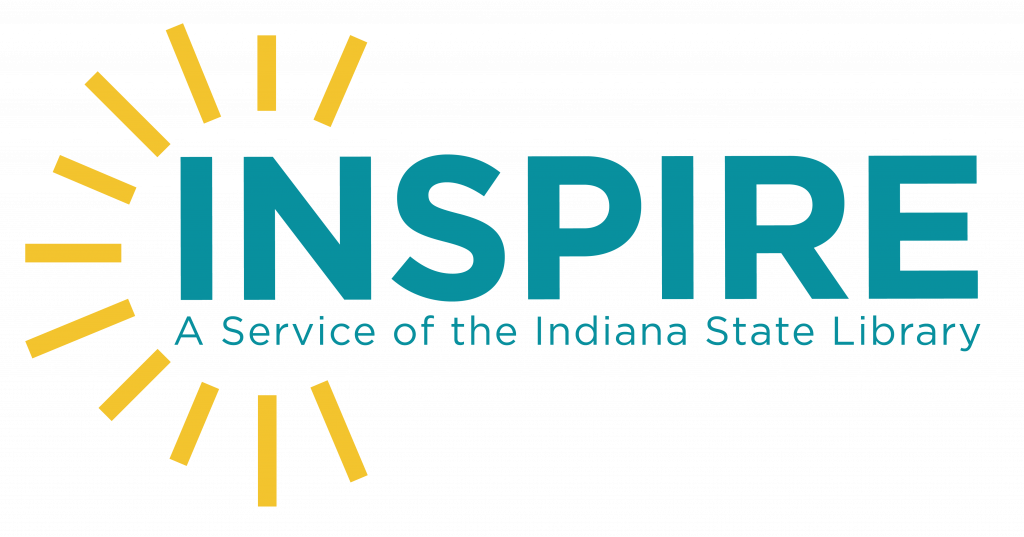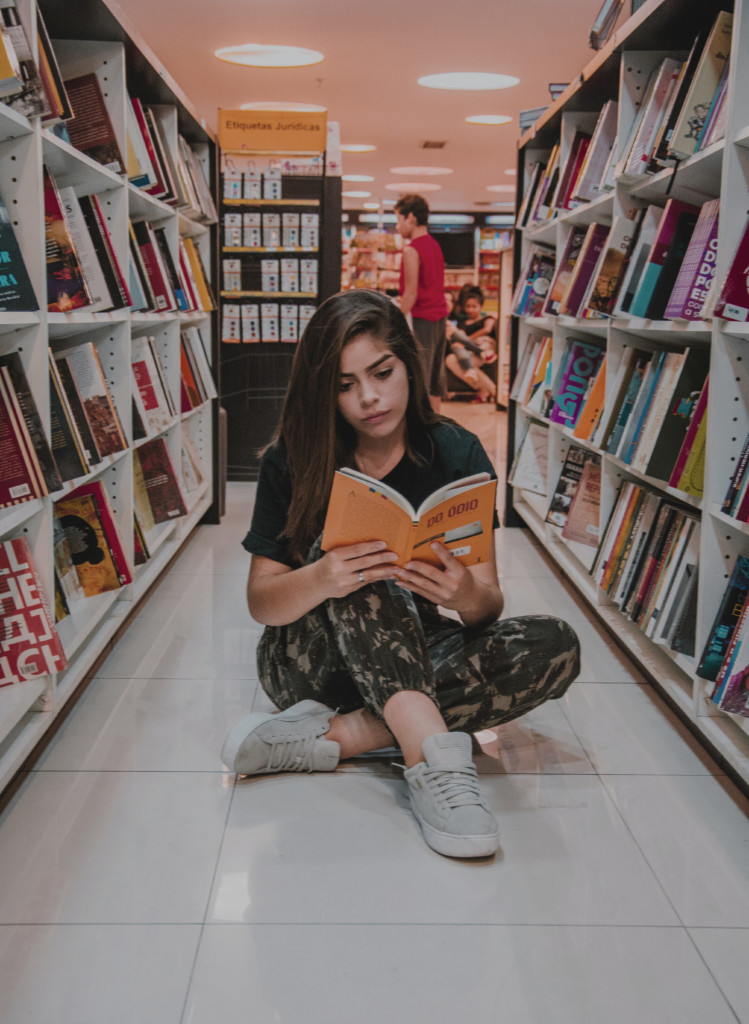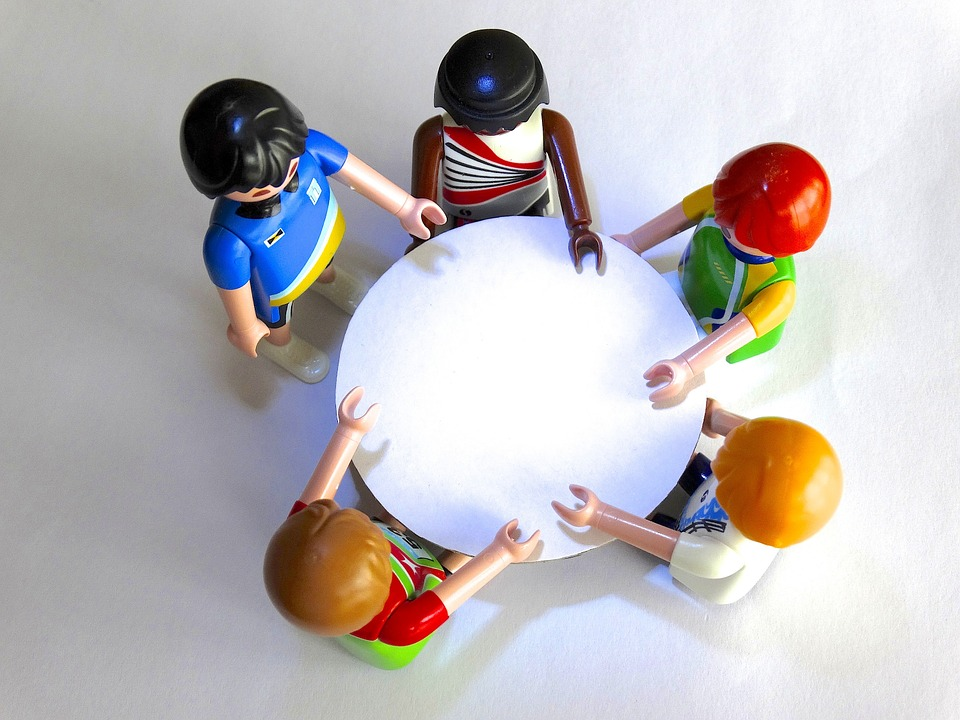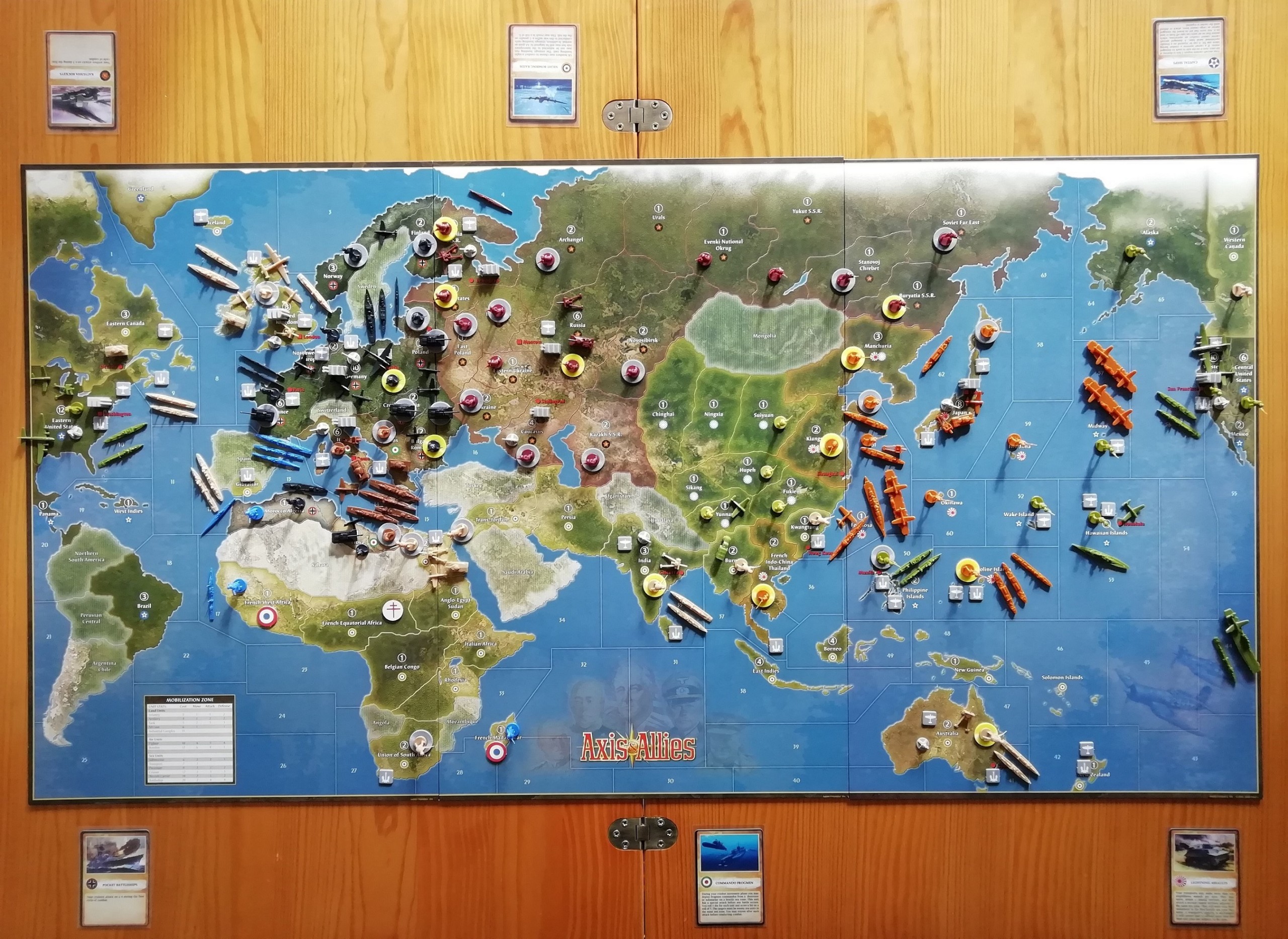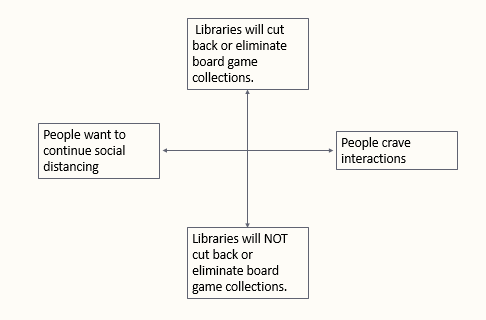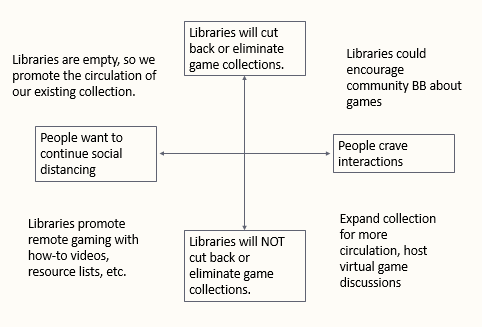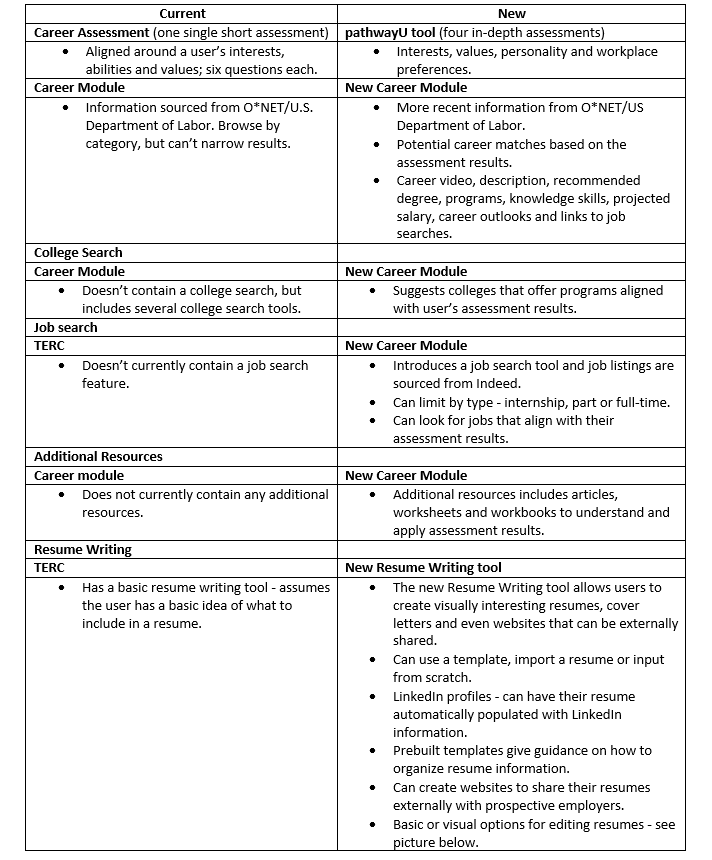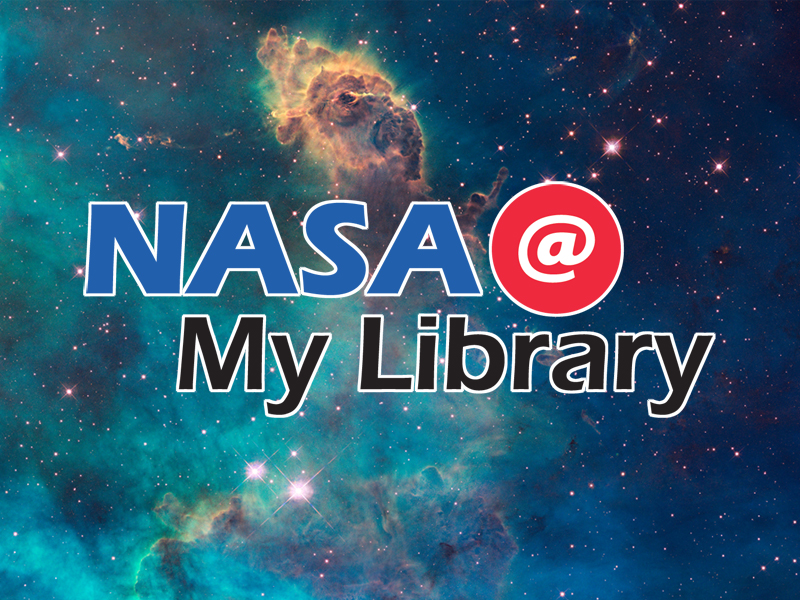My first year as Professional Development Office supervisor at the Indiana State Library started with me taking over the planning of the 2018-19 Indiana Library Leadership Academy. This past week I sent out the applications for the 2020-21 cohort. With the next academy on the horizon, I would like to highlight some 2018-19 INLLA cohort members’ projects. Below, some of the 2018-19 INLLA members describe their projects.

Jennifer Taylor, Hagerstown Library
“[My goal] was increasing the number of teen workers at the library, and we’ve hired two more teenagers to work in the library. I’ve increased my involvement at our local high school to get more teen programs occurring in the local high school. I also capitalized on International Games Week to increase the game programs in the library at the high school, which met two times there that week. I had 50-54 high school students at each of those programs. Since then, I have been at the high school once a week, and still kept 48-50 students at each game session. There was also a feature about the gaming programs that I have done, including the junior high school program, in a local paper that was then featured in the Indiana Library Federation newsletter in October about “Great Things in Libraries.”
Because of her involvement with the area schools, Jennifer’s library saw a 60% increase in participation in their Summer Reading Program. She is slated to do three webinars related to gaming for the Indiana State Library this year.
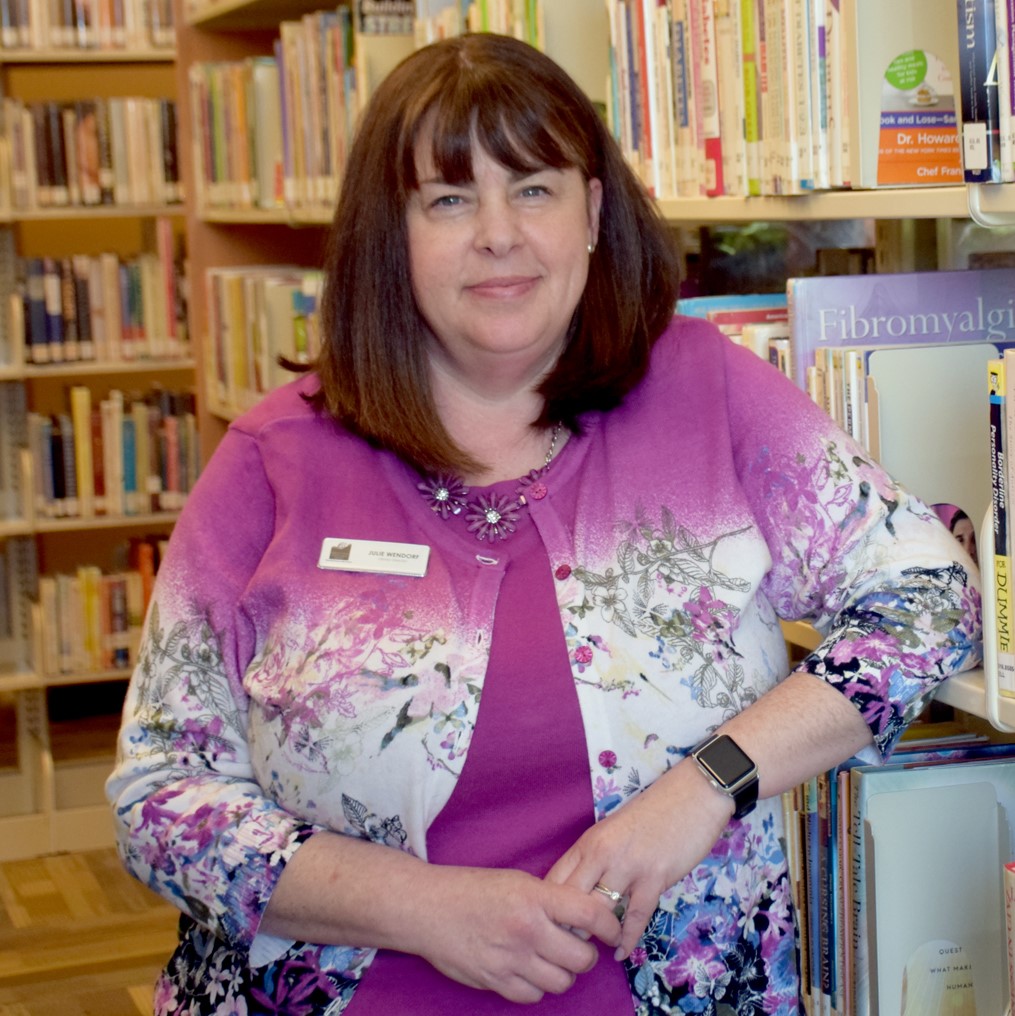
Julie Wendorf, Crown Point Community Library
“I wrote and got a grant to fund the TumbleBooks database for the next two years. The use at the schools started in November 2018. I worked with the school’s central office to promote the resource and coordinate adding the database to the school’s integrated one-on-one instruction and content management system. I am thrilled to share that that the use of the database went from 8 views in September, 86 in October and to almost 8,800 views in November. This success will be great as I move forward in the push to get digital library cards for all students in the school system. We will push out staff outreach visits to all the elementary schools during lunch time to issue library cards to all teachers in the district and further share library resources with individual teachers. The successful use of the database will help show the need for more partnerships between school and library. We’re looking at doing targeted visits to the high school to share about INSPIRE when we get those digital cards in place. It would be great to share other databases, too. I’m excited to go to the auto repair class and share Chilton’s. The library also created a bookmark for sensitive teen issues and had the library designated as a Safe Place.”

Melissa Hunt, Morrisson-Reeves Library
“My senior library card [project] is going well. I am established at three senior living facilities. The card gives seniors a slightly longer checkout. Staff at the facilities are working with this project and are trained to help the residents place holds so that they are getting items ready ahead of time and between myself and the staff we are getting the books to the members. One facility has declined to participate in the program, but we were able to take some weeded materials and our Friend’s group is allowing me to take some materials from their donations to that center as well. Because of this project, the senior center asked me to give a presentation about Morrison-Reeves Library and its resources. They would also like to set a book club or library help time. We are working out those details. Maybe I will train some senior center volunteers to run the club and a few staff at Morrison-Reeve Library are willing to go and help at a scheduled time about every 4 to 6 weeks at the center. I am also running two book clubs at two of the senior facilities. Going to the senior center sparked a youth services staff member to visit preschools and elementary schools to promote library cards and do story times.”
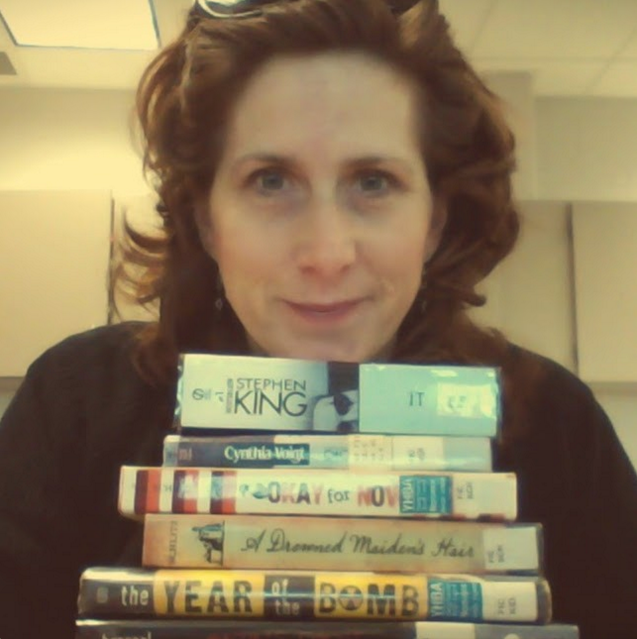
Leslie Sutherlin, South Dearborn School District
“My schools, the middle school and high school in South Dearborn, are hosting author Alan Gratz. I’ve created a packet of resources for teachers on Alan. We are also having a few guest speakers and possibly a panel. I have been in contact with an immigration lawyer as one of the guest speakers. We are also having someone from the Holocaust and Humanities Center in Cincinnati speak. When Alan comes, we may have him present in the evening at our local public library.”

Becca Neel, David L. Rice Library, University of Southern Indiana
“The overall goal of my project was to expand online library instruction and research support for students and instructors in Indiana high schools offering dual credit through USI’s College Achievement Program. To accomplish this goal, I’ve been working closely with our infinitely helpful and supportive CAP administrative team on campus to collaborate on training, communication and promotional efforts. This partnership has afforded me a myriad of opportunities to exchange ideas and to share resources and services with a diverse group high school CAP instructors via LibGuides and Zoom instruction sessions. A list of CAP LibGuides resulting from recent instructor collaborations can be found here.
“More recently, this project has connected me with some incredibly innovative and energetic media specialists from CAP partner high schools who have been instrumental in providing me with both a context for approaching information literacy in a non-university environment and an audience willing to listen to incessant gushing over INSPIRE database content and navigation.
“As the result of these various partnerships, and with the support and supreme event-planning expertise of the USI Rice Library’s head of public services, library support for the CAP community will continue its expansion through a day-long Linking Information Literacy Across CAP workshop aimed at bringing together USI librarians, media specialists and public librarians connected with the CAP high schools.
“This workshop is intended to foster long-term network of collaboration among librarians and media specialists, and will feature info-sharing and brainstorming sessions, as well as resource and technology training to provide school librarians with editor privileges for school-specific LibGuides. An example of one such collaborative LibGuide can be found here.”

Carrie Vrabel, Allen County Public Library
“My project became the creation and promotion of a free, web-based resume generator especially designed for patrons with beginner-level computer skills.
“This resume generator creates a formatted, printable and saveable resume. There are instructions for printing at the top of the page. Many of the fields auto-capitalize for patrons with beginner-level computer skills and there are examples of wording that can be used in the qualifications and skills fields.
“I sent the link to ALA’s ThinkTank on Facebook and received overwhelmingly positive feedback. I also presented this new resource at the ILF Regional Conference in Mishawaka on Monday, April 22, 2019. To my knowledge, Resume Generator is the only free web-based resume generator on the internet, so I hope to get the word out to as many librarians as possible!”

Jenna Anderson, Kendallville Public Library
“Following an inspirational conference session on a STEM program for teens in 2017, as the Kendallville Public Library Marketing specialist I thought, ‘What if I took some of these ideas, added more topics, put the program online and expanded it to everyone?’
“In June 2018, the Kendallville Public Library unveiled Design Your Climb, an online, points-based system for learning and fun. At the time, the challenges included library skills, makerspace experiences, robot programming and other library-related activities. It generated some excitement in the community, especially because participants could win prizes as they earned points.
“Once again, that ‘what if’ question took over. What if the library expanded Design Your Climb so people could not only experience the library, but experience the community? Through the Indiana Library Leadership Academy, I learned valuable leadership skills and developed a plan of attack for involving the community in Design Your Climb.
“I approached local organizations and nonprofits, offering them the benefits of the library’s exposure at no cost to them. In exchange for working with the library to develop a challenge track specifically for them and promoting it through their own marketing channels, the library would support the challenge on its online system, promote the challenges as well and award prizes. Many recognized a win-win when they saw it, and took the library up on the offer. To date, three organizations have four on-going challenges among them, while several more are developing their challenges. The number of Design Your Climb participants continues to grow, while the awareness of the services in the community increases, as well.
“Design Your Climb is a partnership between the Kendallville Public Library and the East Noble School Corporation. KPL handles the Personal Growth portion of the initiative, while East Noble is unveiling the Educational Growth portion of Design Your Climb to its second grade students. Design Your Climb Personal Growth can be found here.”
Jenna was so inspired by INLLA, and specifically speaker Cathy Hakala-Ausperk, that she says it literally changed her life. Her approach to her job has expanded, she has pursued additional leadership training and is now moving herself and her library in new and exciting directions. She was also recently promoted to support services manager.

Charles Rude, Kewanna-Union Township Public Library
“I am attempting to digitize a collection of my home town newspapers. I have the library’s support with some budget funds, legal ownership of the papers for the library and a loose commitment of funds from the community foundation. At this point, I am still hoping to get other local organizations on board and expand my scope. I am in discussions with the historical society and my library neighbors and towns. I am asking them for contributions or whatever they can do to support the project and they seem very positive. I still feel strongly that we need to preserve our history for future generations so I will be working with these organizations to get the ball rolling.”

Katie Lehman, Muncie Public Library
“My educational resource boxes are being built by a local Eagle Scout and will be installed at our south side branch and at a partnering location. Inside the boxes there will be educational tools and supplies that anyone can take and utilize. This will include things like crayons, glue sticks and different educational activities assembled by Ready Readers staff. I am looking at partnering with either the YWCA or YMCA as the second location for a box.
“Many of the children in my program talk about not having items such as crayons, markers, glue, dice, etc. at home. While many locations give these things out at the beginning of the school year, the supplies often must stay at school. Even when they do go home, they are used up quickly, lost or thrown out in a quick move.
“While it is not specific to my INLLA project, I did want to share that since INLLA, I have secured two grants for Muncie Public Library’s Ready Readers Program. One through Psi Iota XI to update the furniture in the room to make sessions more comfortable and one through Delta Kappa Gamma for teaching supplies to use with students in sessions.
“I feel that I gained a lot out of my INLLA experience. One thing that really stuck with me was a response from one of the panel members who said, ‘Keep your head down and do the work. I’ve kept that mantra and it’s paid off! I was recently promoted to director of academic enrichment and now supervise 10 staff and more than 85 kids.”
If you would like to apply to be a part of the 2020-21 INLLA Cohort, click here for the application. The application is due Friday, Feb. 28. If you have any questions, please contact Kara Cleveland at 317-232-3718 or via email.
This blog post was written by Kara Cleveland, Professional Development Office supervisor at the Indiana State Library.
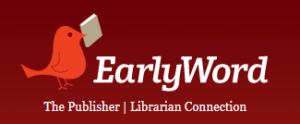 EarlyWord – The EarlyWord website is a great place to find contact information for publishing houses and their many imprints. As a librarian, you can request books early to review and/or preview for purchase. Once you find out the publisher of a book, EarlyWord is a great place to go to find out who to contact for a specific book. They have two lists: one for adult publishing contacts and one for children’s publishing contacts. Another great feature of EarlyWord is that you can sign up for librarian newsletters from the links provided and organized by publisher. Publisher’s newsletters most always have contests and giveaways for free books for librarians.
EarlyWord – The EarlyWord website is a great place to find contact information for publishing houses and their many imprints. As a librarian, you can request books early to review and/or preview for purchase. Once you find out the publisher of a book, EarlyWord is a great place to go to find out who to contact for a specific book. They have two lists: one for adult publishing contacts and one for children’s publishing contacts. Another great feature of EarlyWord is that you can sign up for librarian newsletters from the links provided and organized by publisher. Publisher’s newsletters most always have contests and giveaways for free books for librarians. Bookish First – On Bookish First, there are a few featured books each month that you can read an excerpt from and provide a quick first impression. For each of impression you write, you get points. You are also entered to win physical copies of each book you write the first impression for as well. Then, if you review books on their website, share your review to Amazon, Goodreads, or your blog if you have one, you can receive even more points. Once you have 2,000 points, you can choose a free book to be mailed to you. It’s free to signup, and when you do, you automatically get 500 bonus points to get you started.
Bookish First – On Bookish First, there are a few featured books each month that you can read an excerpt from and provide a quick first impression. For each of impression you write, you get points. You are also entered to win physical copies of each book you write the first impression for as well. Then, if you review books on their website, share your review to Amazon, Goodreads, or your blog if you have one, you can receive even more points. Once you have 2,000 points, you can choose a free book to be mailed to you. It’s free to signup, and when you do, you automatically get 500 bonus points to get you started.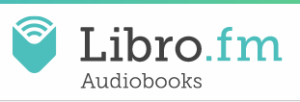 Early Audiobook Listening Copies – There are two places I check each month to get complimentary early audiobook listening copies, known as ALCs, specifically for librarians. These are LibroFM and the Volumes app. Both are free to sign up. With LibroFM, librarians and educators can download three free audiobooks each month from their selection, which is updated monthly. For the Volumes app, you’ll have to download the app and then signup on the link provided above. Then you can download free audiobooks each month to review. They are yours to keep after downloading.
Early Audiobook Listening Copies – There are two places I check each month to get complimentary early audiobook listening copies, known as ALCs, specifically for librarians. These are LibroFM and the Volumes app. Both are free to sign up. With LibroFM, librarians and educators can download three free audiobooks each month from their selection, which is updated monthly. For the Volumes app, you’ll have to download the app and then signup on the link provided above. Then you can download free audiobooks each month to review. They are yours to keep after downloading.
